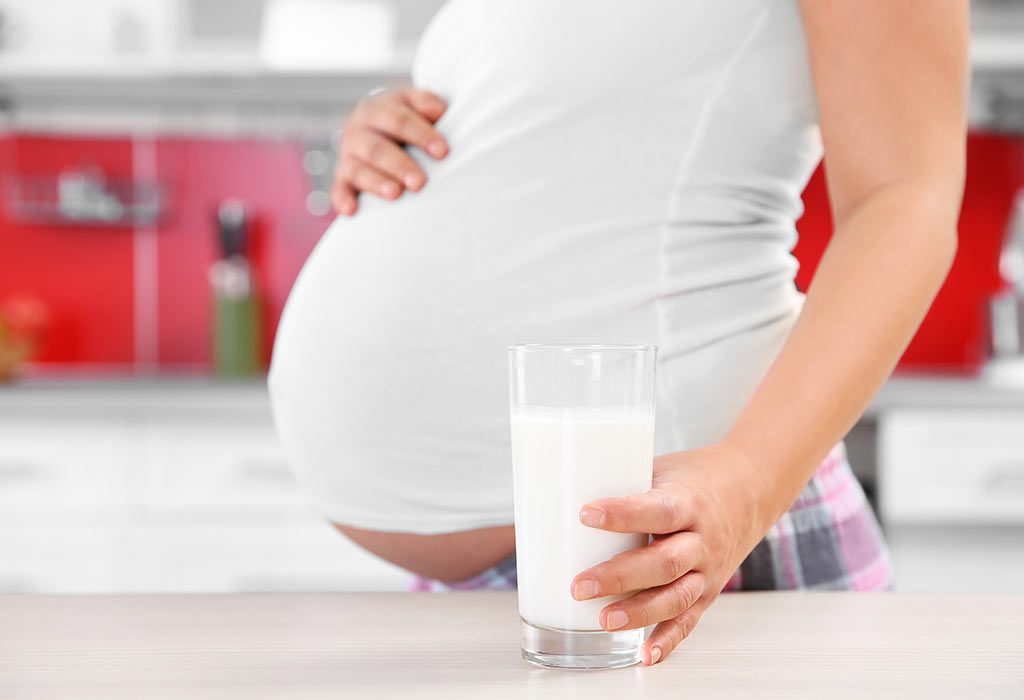Pregnancy can bring about many changes, both expected and unexpected, in a woman’s body. One such change is the development of lactose intolerance during pregnancy. While this food intolerance is common, it is often unexpected and can be difficult to manage. For those who are curious about the development of lactose intolerance while pregnant, this blog post will provide an overview of the causes, symptoms, and treatments. It will also provide tips for preventing and dealing with this uncomfortable food intolerance. We will discuss how to determine if you have lactose intolerance during pregnancy and how to eat a balanced and healthy diet while managing the intolerance. Additionally, we will talk about the health risks associated with not managing lactose intolerance during pregnancy. Finally, we will discuss the need for regular medical check-ups during this time.
Can You Suddenly Become Lactose Intolerant When Pregnant? Why?
It is downright unpleasant to feel uneasy, bloated, gassy, or have issues using the bathroom after consuming dairy and/or lactose. Though national averages are not available, many women report a newfound feeling that dairy disagrees with them. If you have discovered yourself with these symptoms of lactose intolerance while pregnant, you’re not alone.
A decrease in the amount of lactase enzyme that your body naturally produces causes lactose intolerance. This enzyme is in charge of digesting the carbohydrate lactose.
Digestive troubles arise when your body does not make enough lactase to break down all of the lactose you’ve eaten (Source: Medscape).
Whether lactose intolerance goes away or persists after childbirth, changes in how your body reacts to food are not a surprise.
One study found that not only did some women become lactose intolerant during pregnancy, but pre-existing lactose intolerance can also get worse (source: Clinical and Investigative Medicine).
During pregnancy, there are plenty of changes, but none have been definitively linked to a decreased lactose tolerance. Everything from a hormonal change to the positioning of your internal organs as the baby grows may be to blame.
Unfortunately, there is not much you can do to “cure” it, regardless of why you are feeling less tolerant to lactose these days. Instead, cutting back on lactose is what will most likely improve your mood. When eating dairy, choose lower-lactose varieties, limit your intake, or choose lactose-free options for the majority of your meals.
Another choice is lactase pills, also known by the brand name Lactaid. To assist you in better digesting the lactose in your foods, these pills contain additional lactase. It is best to discuss this choice with your doctor before taking lactase pills.
It might be genetic. Other times, an injury to the small intestine, which normally produces lactase, results in lactose intolerance.
While drinking milk is not a requirement for a healthy pregnancy, getting enough calcium is. The fact that your body will draw calcium from your bones and teeth to ensure that your baby has what she needs to grow healthy and strong means that your baby will be fine no matter what, even if you don’t get enough calcium. And that could have terrible long-term health consequences for you, like osteoporosis. Related Video.
Pretty common. Adults are more likely to experience it (since they don’t have the same biological need to consume milk as young children do), and people of African, Asian, South American, or Native American ancestry are more likely to experience it.
Try almond, soy, or rice milk if you can’t tolerate cow’s milk. Calcium is also in kale, broccoli and salmon. Yogurt may be tolerated by some lactose intolerant women, so you should give it a try and see how it goes.
Since it can be challenging to consume the 1,200 mg of calcium per day for pregnancy that is advised without consuming dairy products, many lactose intolerant pregnant women opt to take calcium supplements. Choosing a calcium citrate supplement over a calcium carbonate one is what Vanderbilt University assistant professor of nurse-midwifery Michelle Collins, CNM, advises. Calcium citrate tends to work better for pregnant women because it is much more absorbable and doesn’t cause constipation. ”.
What Causes Lactose Intolerance in Pregnancy?
The answer to the question “can pregnancy cause lactose intolerance” is a little nuanced. Your body may undergo many changes as a result of pregnancy hormones, and your digestive system may also be impacted. Your immune system causes everything to move slowly, which may also affect how your food is digested. As a result, you may occasionally mistake this for lactose intolerance. However, that may not be the case. However, if you already struggle with lactose intolerance, pregnancy may help to lessen your symptoms. Here are some known causes of lactose intolerance in pregnancy:
As you can see, pregnancy does not directly cause lactose intolerance, but it does cause physical changes that make it difficult to properly digest milk.

FAQ
Can you be lactose intolerant when pregnant?
Why does dairy make me sick while pregnant?
Can you develop intolerance during pregnancy?
Can dairy cause diarrhea during pregnancy?
